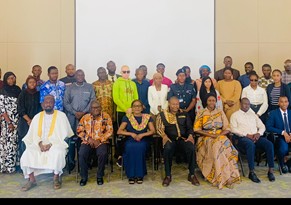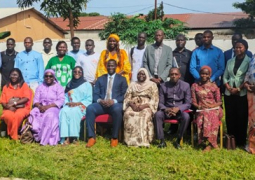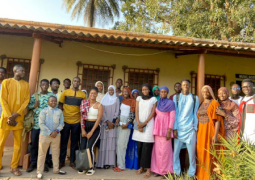
As part of its revised strategic plan, the NHRC has prioritised the advancement of economic, social, and environmental rights, with a strong emphasis on integrating climate justice into the national human rights agenda.
To deepen understanding among commissioners and staff, the Commission, supported by the Danish Institute for Human Rights—conducted a five-day nationwide data collection exercise from 20th to 25th July 2025. The survey targeted communities most affected by climate change, capturing their lived experiences and perspectives.
Speaking at the opening ceremony, NHRC Chairperson Emmanuel D. Joof highlighted the devastating impacts of climate change, including floods, droughts, coastal erosion, and erratic weather patterns that threaten livelihoods, food security, health, housing, and ultimately, human dignity. “The Gambia, like many countries, is grappling with these realities, and the most vulnerable groups bear the heaviest burden,” he stated.
Joof explained that the assessment aimed to amplify the voices of affected communities and engage policymakers in identifying policy gaps and strengthening the legal framework. He commended the Ministry of Environment, Climate Change, and Natural Resources for its support in facilitating the study.
“This validation process is not just about reviewing the report; it is about ownership. This document belongs to all of us, and your contributions will ensure it serves as a credible advocacy tool for policy and legal reforms,” he added.
Kate Griffin, Climate Change Focal Person at the Danish Institute for Human Rights, praised the collaboration and noted that the NHRC adopted the Institute’s analytical framework, which employs human rights indicators to assess climate laws, policies, and initiatives.
“This approach not only evaluates how climate change affects human rights but also ensures the voices of rights holders are at the centre,” she explained.
Griffin emphasised that The Gambia, despite contributing minimally to global emissions, faces severe climate impacts that threaten access to food, water, housing, and other basic rights. She urged governments to adopt rights-based approaches to climate adaptation, stressing the importance of targeted measures for vulnerable populations.
The validated report is expected to serve as a vital tool for advocacy, policy development, and legal reform, reinforcing The Gambia’s commitment to climate justice and the protection of human rights.




